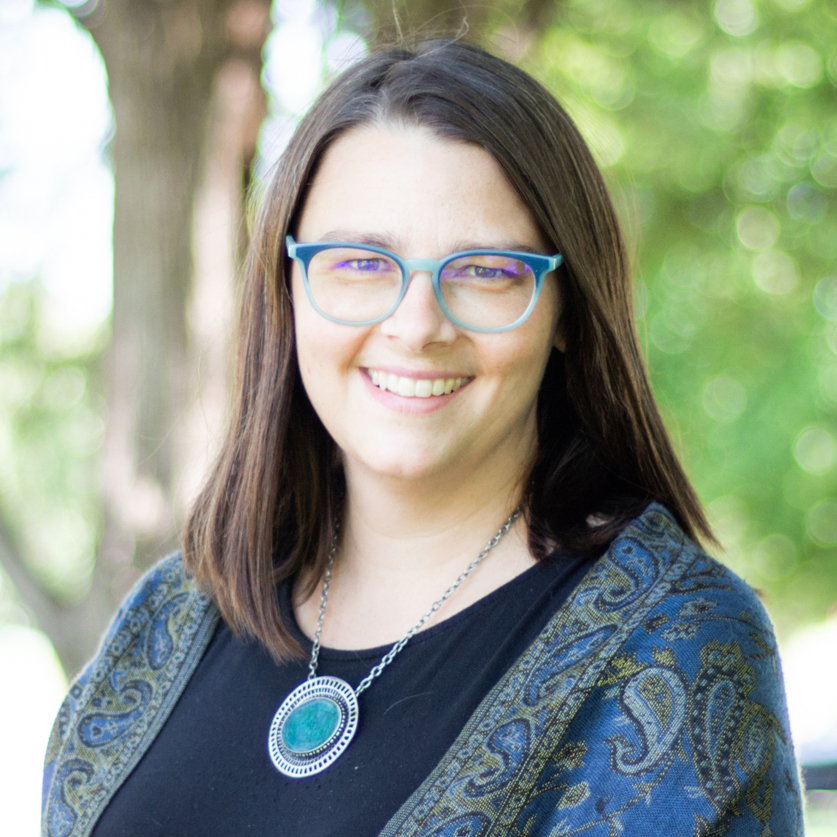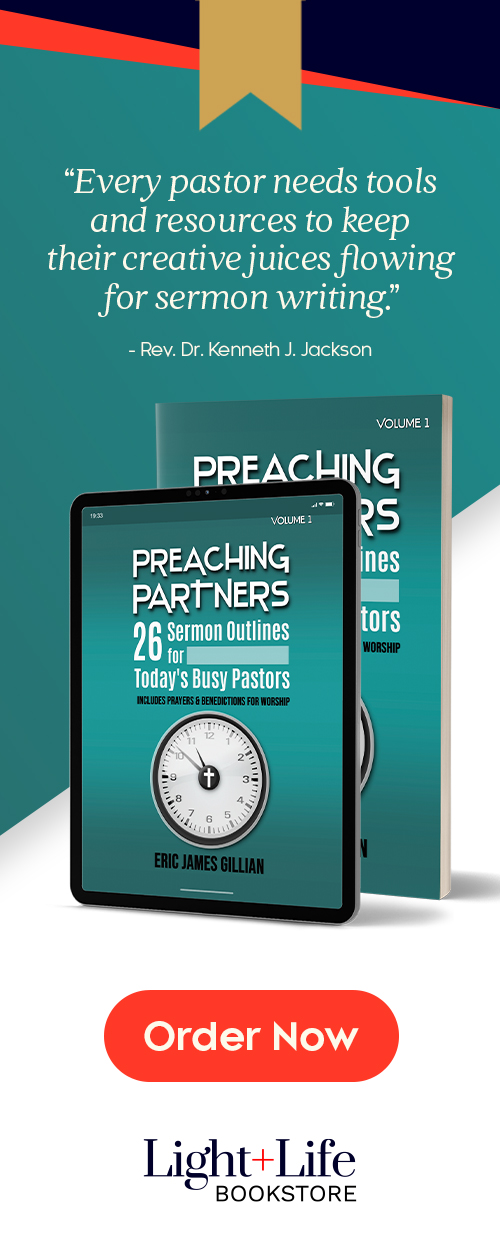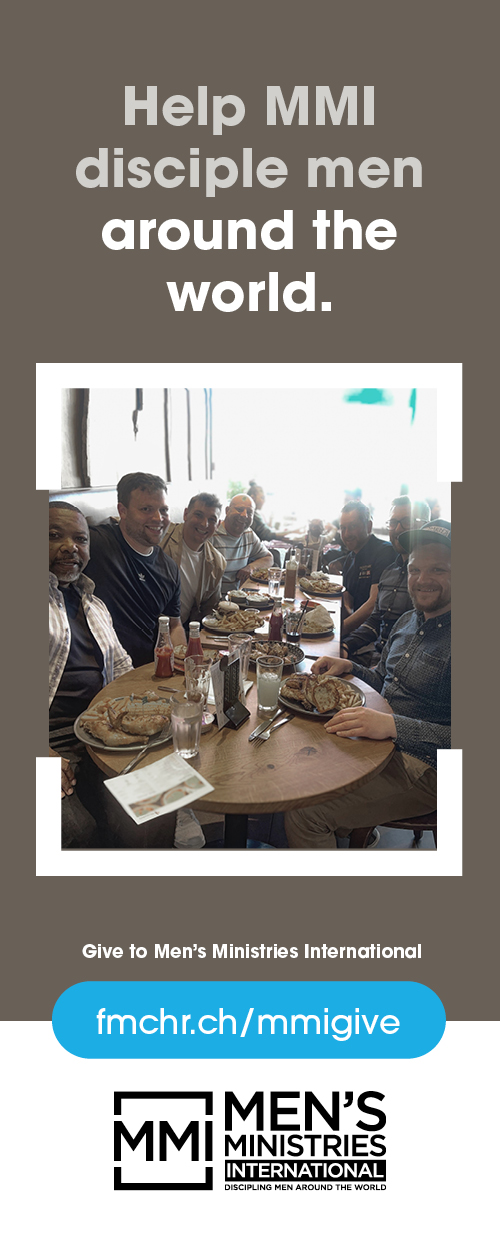
Mindi Grieser Cromwell
Mindi Grieser Cromwell, Ph.D., is a Free Methodist elder who resides in McPherson, Kansas, where she is the chair of the ministry and theology department at Central Christian College of Kansas. She also serves as the chair of the Free Methodist History and Archives Committee. This article is adapted from her June 30 message to the hundreds of teens attending FMYC 2022.
By Mindi Grieser Cromwell
The best way to understand the communal nature of God is the word Trinity.
Trinity is a simple, quick way of saying that God — the God we know through the Old and New Testament Scripture, the God of Christianity, the God of the Universe — is one God in three Persons. The three Persons — Father, Son, Spirit — are in eternal relationship with each other, forever in community and forever offering to include us.
The word Trinity is a term used to talk about the reality of who God is as described in Scripture.
So why do we care about a fancy theological vocab word? Why does it make any difference in your life? Why does it matter that we worship a God who is three Persons in one God?
Because that truth about God — three Persons in one — shows us that at the very center of God is relationship. God the Father, God the Son, and God the Holy Spirit are in ongoing relationship, before creation and forever in an ongoing relationship. God is communal. This communal God is the God who saves, the God who deserves our worship, the God of the universe who wants to be in relationship with us.
_
“We invite others to be in relationship with Him, and that changes lives.”
_
When we center our lives around this core truth that God is community and that truth transforms our hearts, minds, and souls, we move from knowing about God to knowing God and being in relationship with God. Then we invite others to be in relationship with Him, and that changes lives. It changes our lives and the lives of the people we invite into relationship with God
Let’s see how 1 John 4:7–21 ties together images of the Trinity, God as community, and the love of God and others:
Dear friends, let us love one another, for love comes from God. Everyone who loves has been born of God and knows God. Whoever does not love does not know God, because God is love. This is how God showed his love among us: He sent his one and only Son into the world that we might live through him. This is love: not that we loved God, but that he loved us and sent his Son as an atoning sacrifice for our sins. Dear friends, since God so loved us, we also ought to love one another. No one has ever seen God; but if we love one another, God lives in us and his love is made complete in us.
This is how we know that we live in him and he in us: He has given us of his Spirit. And we have seen and testify that the Father has sent his Son to be the Savior of the world. If anyone acknowledges that Jesus is the Son of God, God lives in them and they in God. And so we know and rely on the love God has for us.
God is love. Whoever lives in love lives in God, and God in them. This is how love is made complete among us so that we will have confidence on the day of judgment: In this world we are like Jesus. There is no fear in love. But perfect love drives out fear, because fear has to do with punishment. The one who fears is not made perfect in love.
We love because he first loved us. Whoever claims to love God yet hates a brother or sister is a liar. For whoever does not love their brother and sister, whom they have seen, cannot love God, whom they have not seen. And he has given us this command: Anyone who loves God must also love their brother and sister.
Let’s break this passage down and think about what we see about God in community:
God is love.
I count at least 20 times that love is mentioned in these few verses. And what’s the message? God is love. Love is not an accessory to God that God can put on and take off like a new sticker we add to our water bottles. God is love. God’s being is love. That’s why understanding God’s nature as Father, Son, and Spirit is so essential. It is how God is love. Love requires other. Love requires relationship. Love requires self-giving. God is in ongoing, forever, perfect relationship.
God’s community looks to include us.
We see at least two examples in this passage of God offering Himself on behalf of us: “This is how God showed his love among us: He sent his one and only Son into the world that we might live through him. This is love: not that we loved God, but that he loved us and sent his Son as an atoning sacrifice for our sins.”
God sending Jesus to come and take our place is the most stunning example of sacrificial love. This wasn’t based on our love of God but on His love for us. We see that dynamic: God the Father sending His Son Jesus. If we look at verse 13, we see yet another example of God’s love: “This is how we know that we live in him and he in us: He has given us of his Spirit.”
Jesus was not the only gift God has given us. We’ve also been given the Spirit! Both actions — Jesus’ death on the cross and the gift of the Spirit — are gifts that pull us closer to Him. God’s community (Father, Spirit, Son) looks to include us.
God’s community of love asks us to help draw others to Him.
If we do not become loving people to those around us, then maybe we aren’t actually in relationship with God. “Whoever claims to love God yet hates a brother or sister is a liar. For whoever does not love their brother and sister, whom they have seen, cannot love God, whom they have not seen. And he has given us this command: Anyone who loves God must also love their brother and sister.”
We are to reflect the unselfish love of God — who sent His Son — by helping those around us see and experience love.
God the Father, God the Son, and God the Holy Spirit are one God in three persons.
Being in relationship with humans is not some afterthought to God. It isn’t some nice thing that God considers when God has some spare time. Being in relationship with humanity isn’t because God is a nice guy who enjoys being nice to people. The mystery of the triune God is that God is first and foremost relationship within the Godhead. Our opportunity to be in relationship with God is a reflection of who God is. It is grounded in who God is. God is relational. God is communal. That communal, relational center of God is how we understand what love is.
_
“First look to God to know love.”
_
This passage gives us a clear definition of love. “This is love: not that we loved God, but that he loved us and sent his Son as an atoning sacrifice for our sins.” It’s saying that we know love by looking at God. Love is a pattern of choices putting others first that bind us together in relationship. If our understanding of love is broken relationships here on earth, it’s understandable that we would say, “Do I really want to be in relationship with God?” Scripture reminds us to first look to God to know love. When we pattern our understanding of God on failing and faulty human relationships, that’s not God.
Sin breaks community.
Sin breaks our relationships with God and others. What happens when a friend lies to me? Can I trust that the friend want to put my needs first? No, a relationship is broken. What happens when you gossip about someone else in your friend group? Can the person you slandered trust you want what’s best for them? No, a relationship is broken. What happens when there is injustice and brokenness in the schools, communities, and (sometimes) churches we attend? Sin breaks community.
There is a remedy to sin. “This is love: not that we loved God, but that he loved us and sent his Son as an atoning sacrifice for our sins.”
We have to accept Jesus’ atoning sacrifice for our sins, ask forgiveness, and ask God to shape us into people who live out His love. The next verse says, “Dear friends, since God so loved us, we also ought to love one another.”
Right after Christ’s sacrifice, John immediately pushes us to the next step, and it is love. But how do we do it? Well, the next verses tell us: “No one has ever seen God; but if we love one another, God lives in us and his love is made complete in us. This is how we know that we live in him and he in us: He has given us of his Spirit.”
How can we do all this? Through the Spirit God has given us! The power of the Holy Spirit will show us daily, hourly how to love God and others if we will only chose to listen.
_
“Love does not delight in evil but rejoices with the truth.”
_
After all, we don’t just having feelings about love. We have actions of love. 1 Corinthians 13 tells us: “Love is patient, love is kind. It does not envy, it does not boast, it is not proud. It does not dishonor others, it is not self-seeking, it is not easily angered, it keeps no record of wrongs. Love does not delight in evil but rejoices with the truth. It always protects, always trusts, always hopes, always perseveres. Love never fails.”
Who (or what) is the god you worship?
Are you worshipping the God described throughout Scripture as in everlasting community?
There is a common story throughout the Bible from Genesis to Revelation. It’s the story of humans who carry the name of God’s people but are not, in fact, worshipping the one true God.
We can tell the God we worship by the kind of person we are being shaped into. We become what we worship. Worship is simply what we give our time to.
What are you becoming more and more like? Because that’s the god in your life you worship.
Are you becoming more apathetic? Do you care about anything or anybody? Do you care what people do (or don’t do) or how they treat you or others? God (Father, Son, Spirit) cares about you and others.
Are you becoming more focused on being right than being in relationships? Do you like to show up others or put them in their place? What god are you starting to look more and more like? Is it the one God (Father, Son, Spirit) who wants us to know Him and help others know Him?
Are you becoming more inconsiderate? Are you thinking first about how something affects you and you only? What god are you starting to look more and more like? Is it God the Father, God the Son, God the Spirit, one God in three Persons? 1 John 4:9 shows us how much God considers us: “This is how God showed his love among us: He sent his one and only Son into the world that we might live through him.”
Are we becoming more like the God we know through the Bible? We are told that love will be a defining characteristic of followers of Jesus. This isn’t just a message in one book of the Bible. In John 13:34–35, Jesus says, “As I have loved you, so you must love one another. By this everyone will know that you are my disciples, if you love one another”
Are we looking like a God who is relationship? Are we becoming more loving? Is that what defines our lives?
What god does your life say you serve? If we asked your friends, which god would they say you served? Is it the one God in three Persons, forever in community, forever offering to include us?
_
“While Jesus is God’s Son by nature, we have a relationship with God by grace.”
_
God’s love is focused on others. God’s love is concerned with just relationships with others (justice).
Scripture is the story of humanity created by God, broken in relationship with God, and God offering opportunity after opportunity to mend our relationship with God and with each other. While Jesus is God’s Son by nature, we have a relationship with God by grace.
At the core of God is relationship, and God asks us to be in relationship with Him and to be in relationship with each other.
If Christ isn’t God the Son, He’s just a nice guy who died. Belief in a god does not set us apart from other religions. What does set us apart — what makes us unique in our understanding of who God is and how that can change us — is our relationship with God and our relationship with others.
Think about your relationship with God. Is it like the Trinity — forever in community? Are you helping others to be included in this relationship with God? +

Mindi Grieser Cromwell
Mindi Grieser Cromwell, Ph.D., is a Free Methodist elder who resides in McPherson, Kansas, where she is the chair of the ministry and theology department at Central Christian College of Kansas. She also serves as the chair of the Free Methodist History and Archives Committee. This article is adapted from her June 30 message to the hundreds of teens attending FMYC 2022.









